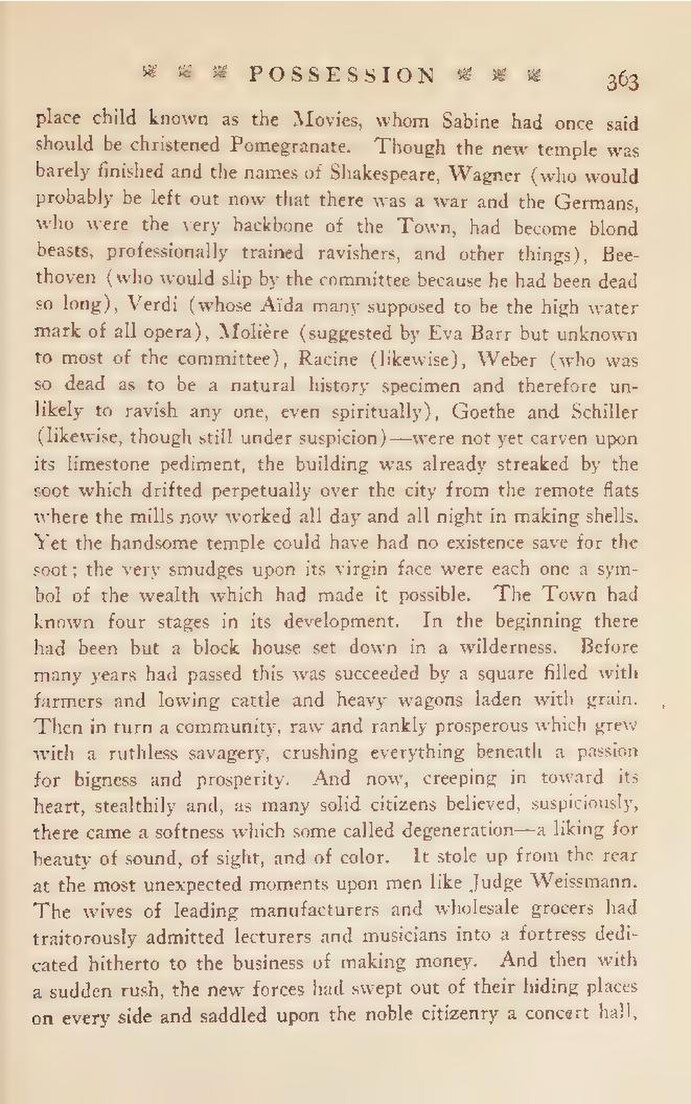place child known as the Movies, whom Sabine had once said should be christened Pomegranate. Though the new temple was barely finished and the names of Shakespeare, Wagner (who would probably be left out now that there was a war and the Germans, who were the very backbone of the Town, had become blond beasts, professionally trained ravishers, and other things), Beethoven (who would slip by the committee because he had been dead so long), Verdi (whose Aïda many supposed to be the high water mark of all opera), Molière (suggested by Eva Barr but unknown to most of the committee), Racine (likewise), Weber (who was so dead as to be a natural history specimen and therefore unlikely to ravish any one, even spiritually), Goethe and Schiller (likewise, though still under suspicion)—were not yet carven upon its limestone pediment, the building was already streaked by the soot which drifted perpetually over the city from the remote flats where the mills now worked all day and all night in making shells. Yet the handsome temple could have had no existence save for the soot; the very smudges upon its virgin face were each one a symbol of the wealth which had made it possible. The Town had known four stages in its development. In the beginning there had been but a block house set down in a wilderness. Before many years had passed this was succeeded by a square filled with farmers and lowing cattle and heavy wagons laden with grain. Then in turn a community, raw and rankly prosperous which grew with a ruthless savagery, crushing everything beneath a passion for bigness and prosperity. And now, creeping in toward its heart, stealthily and, as many solid citizens believed, suspiciously, there came a softness which some called degeneration—a liking for beauty of sound, of sight, and of color. It stole up from the rear at the most unexpected moments upon men like Judge Weissmann. The wives of leading manufacturers and wholesale grocers had traitorously admitted lecturers and musicians into a fortress dedicated hitherto to the business of making money. And then with a sudden rush, the new forces had swept out of their hiding places on every side and saddled upon the noble citizenry a concert hall,
